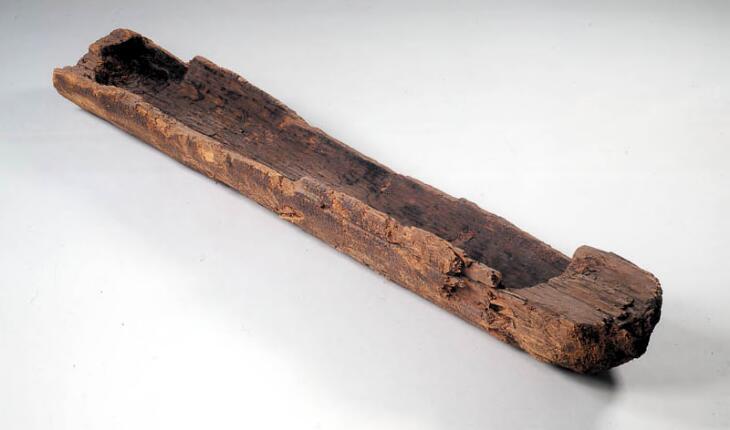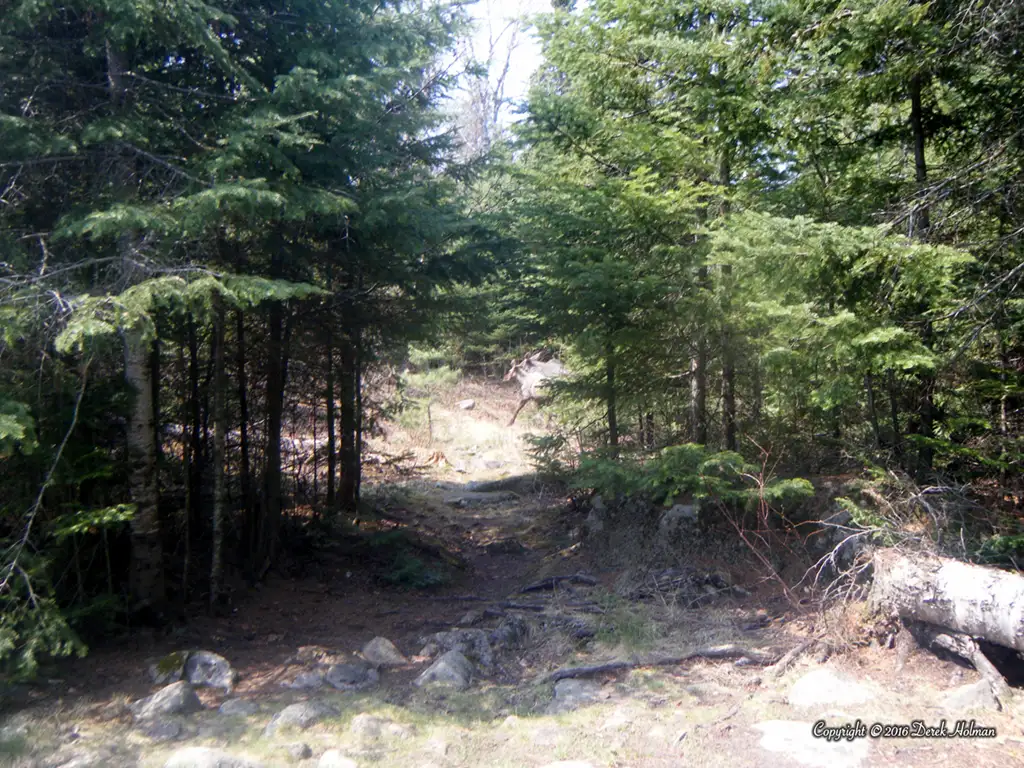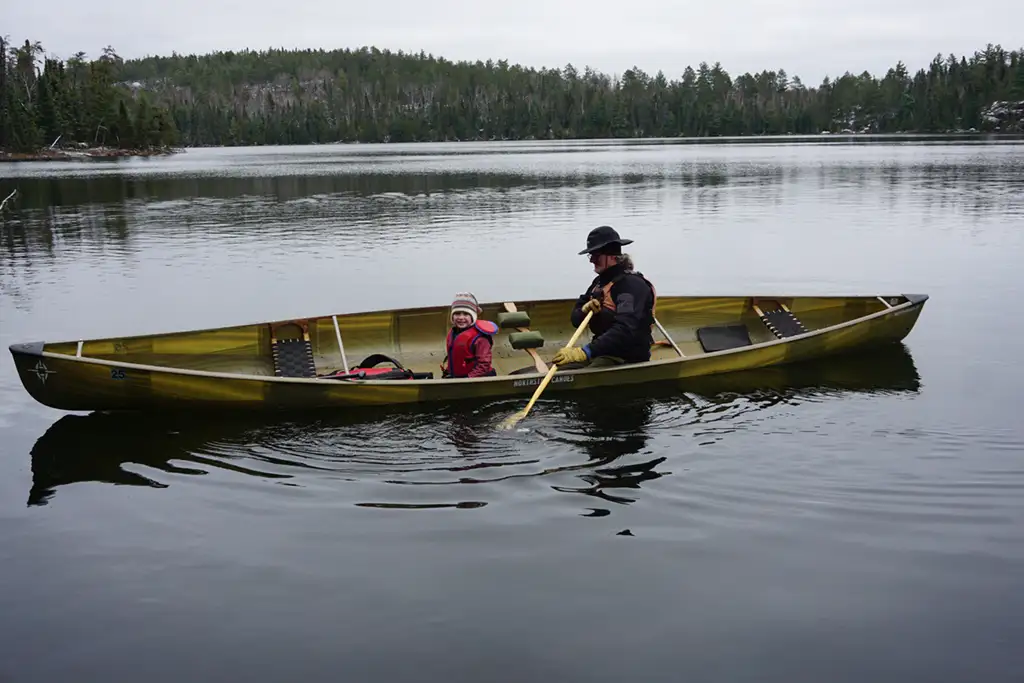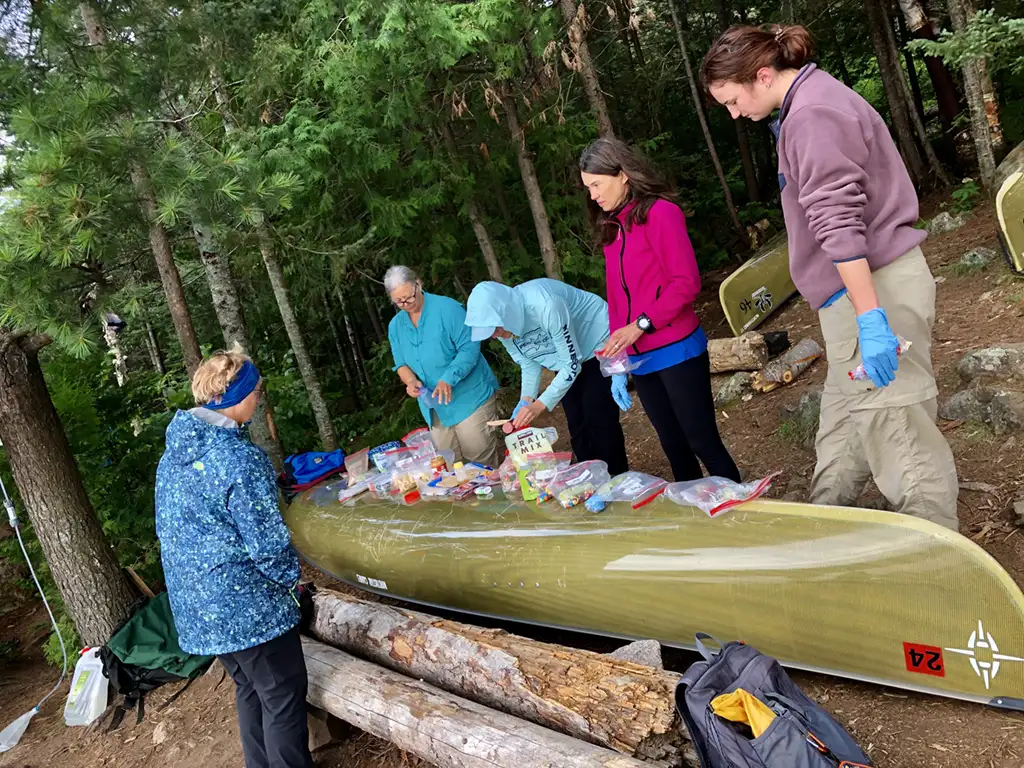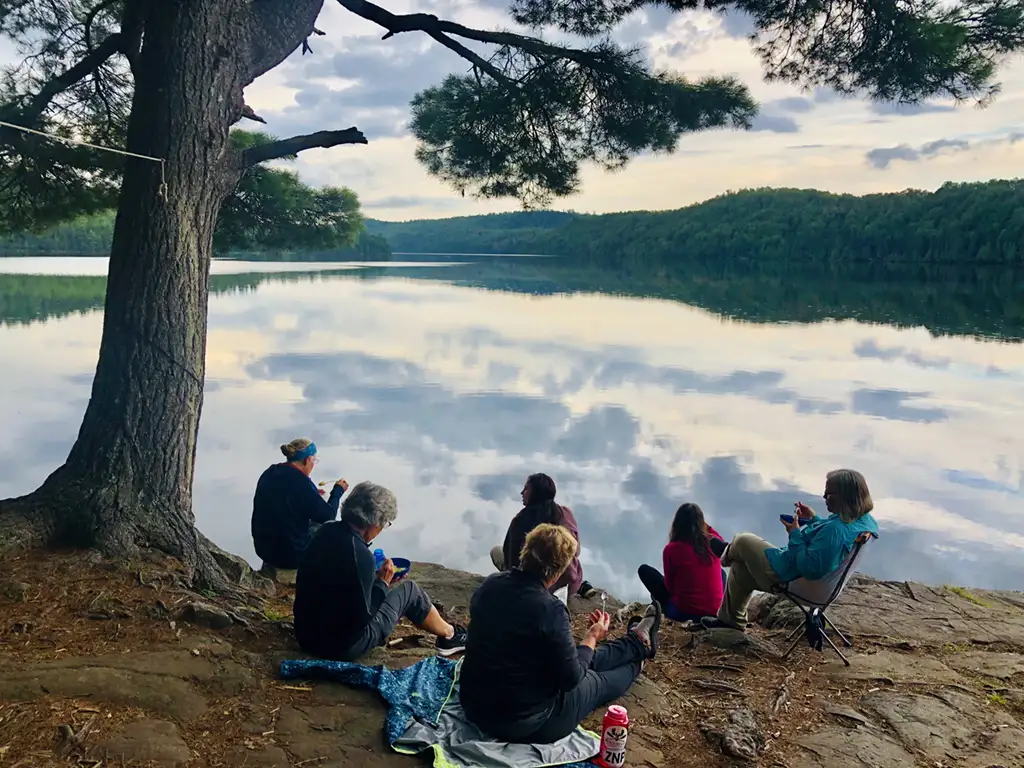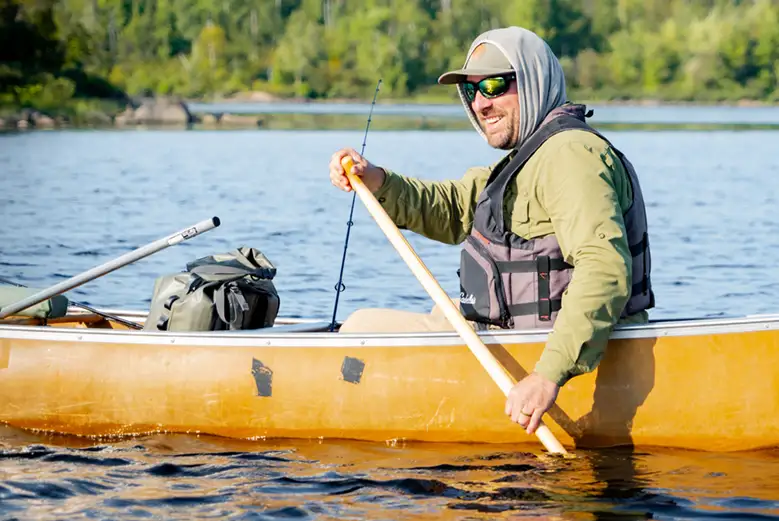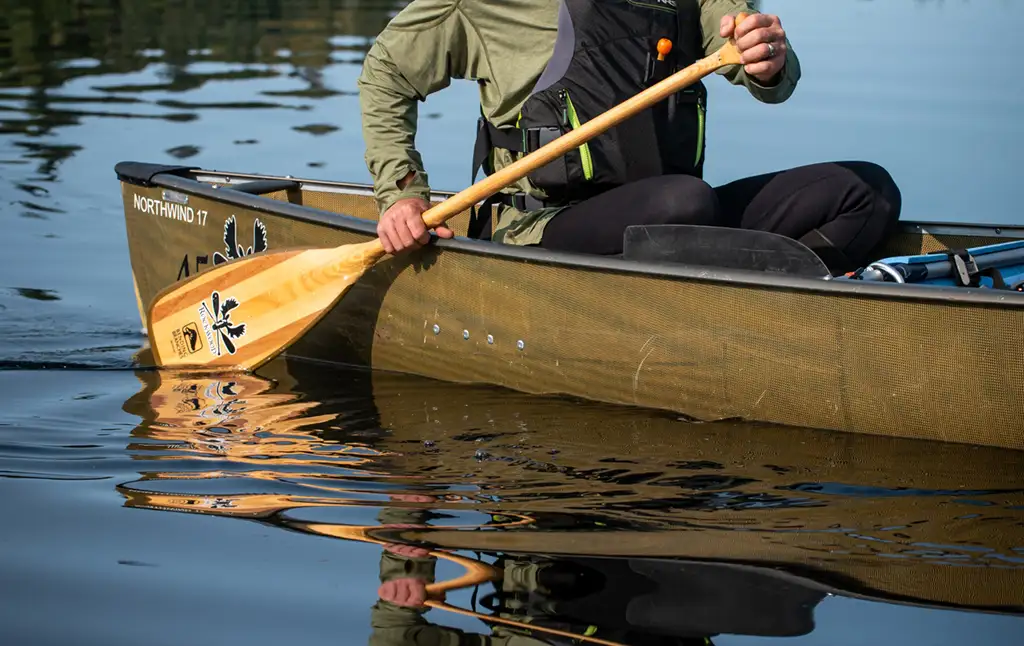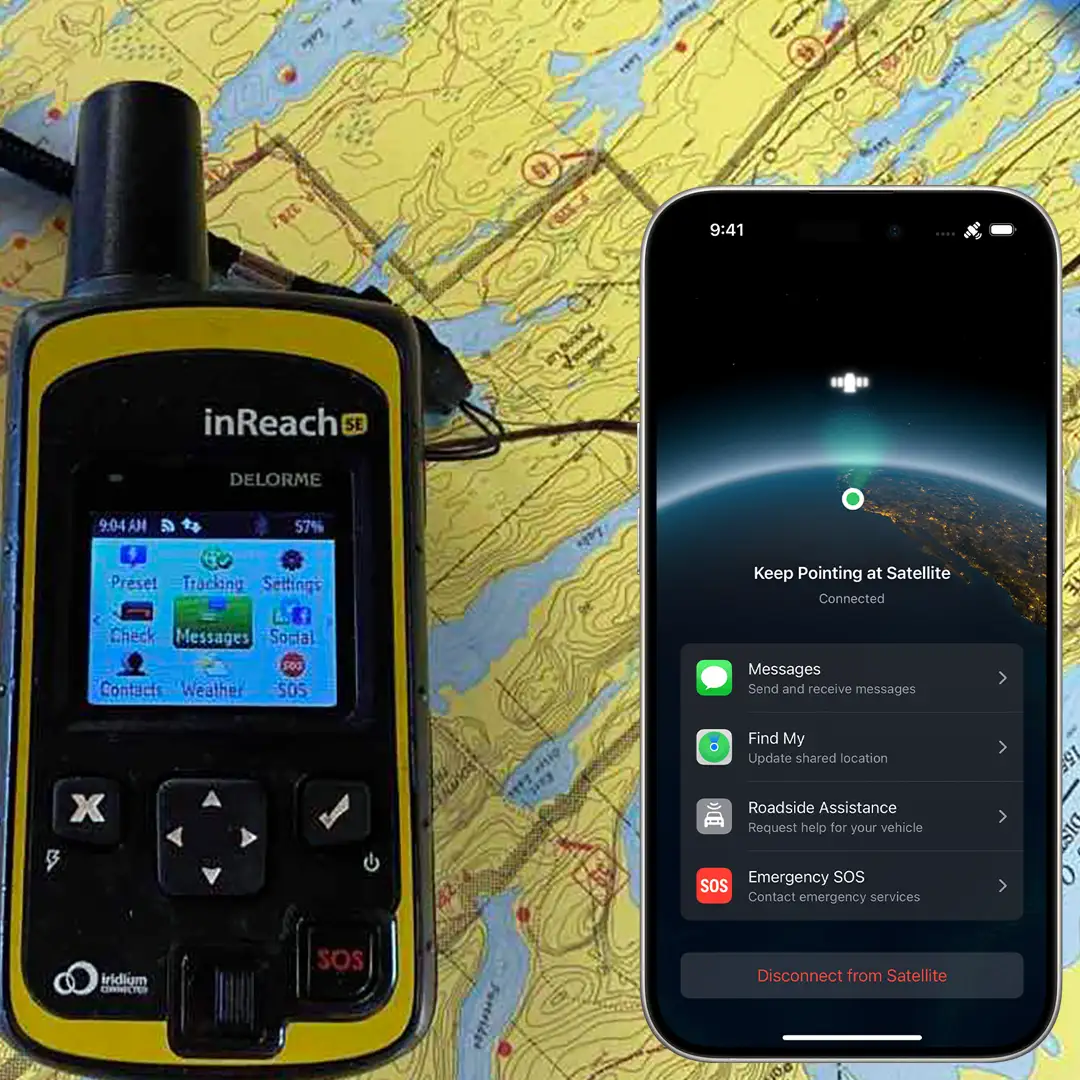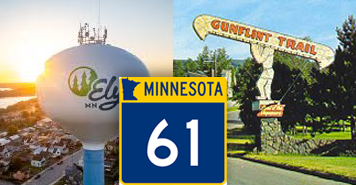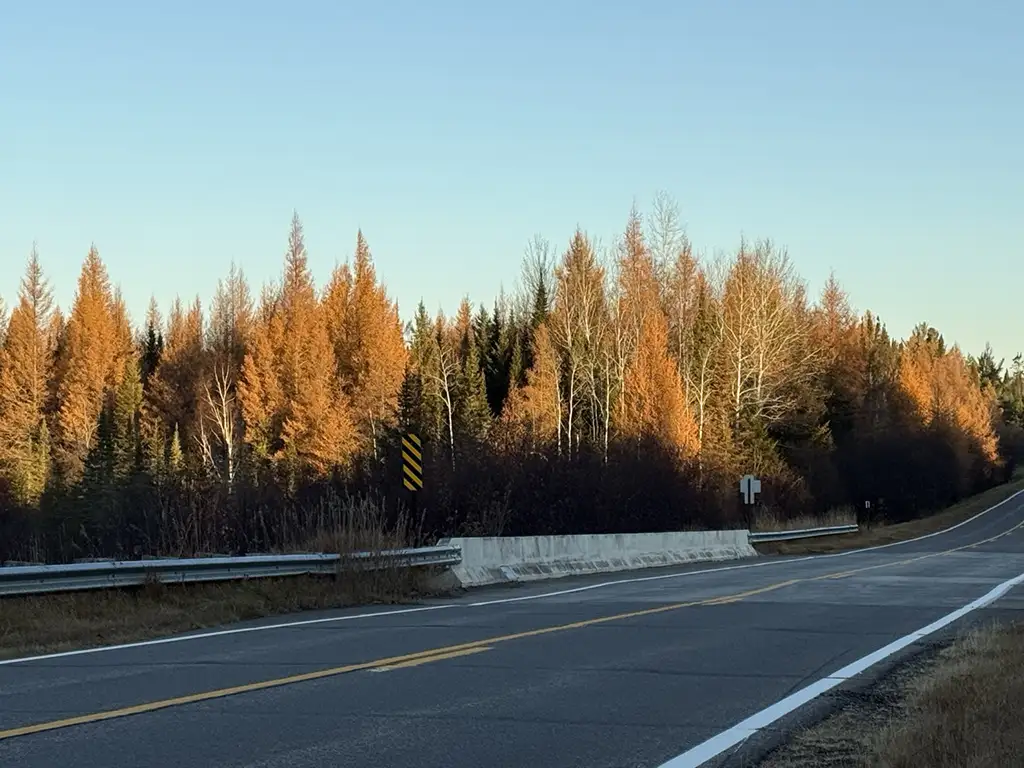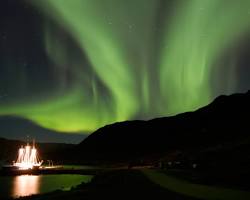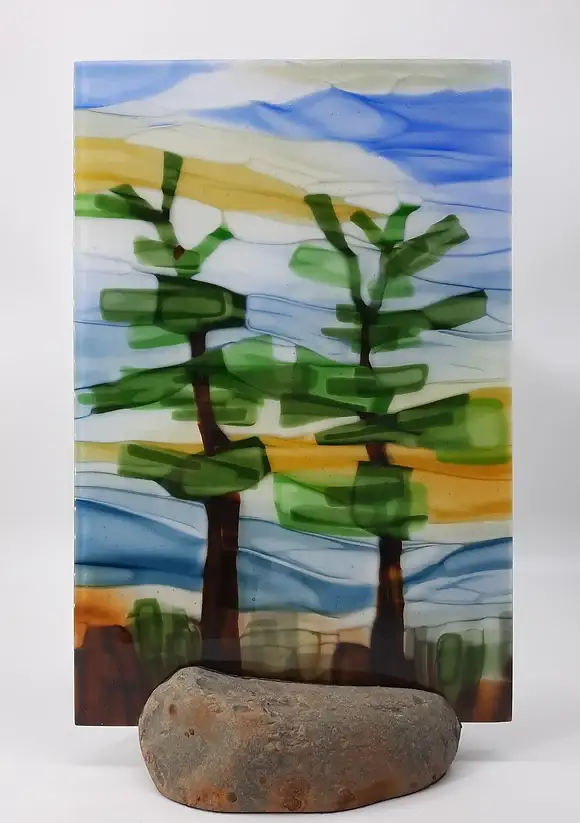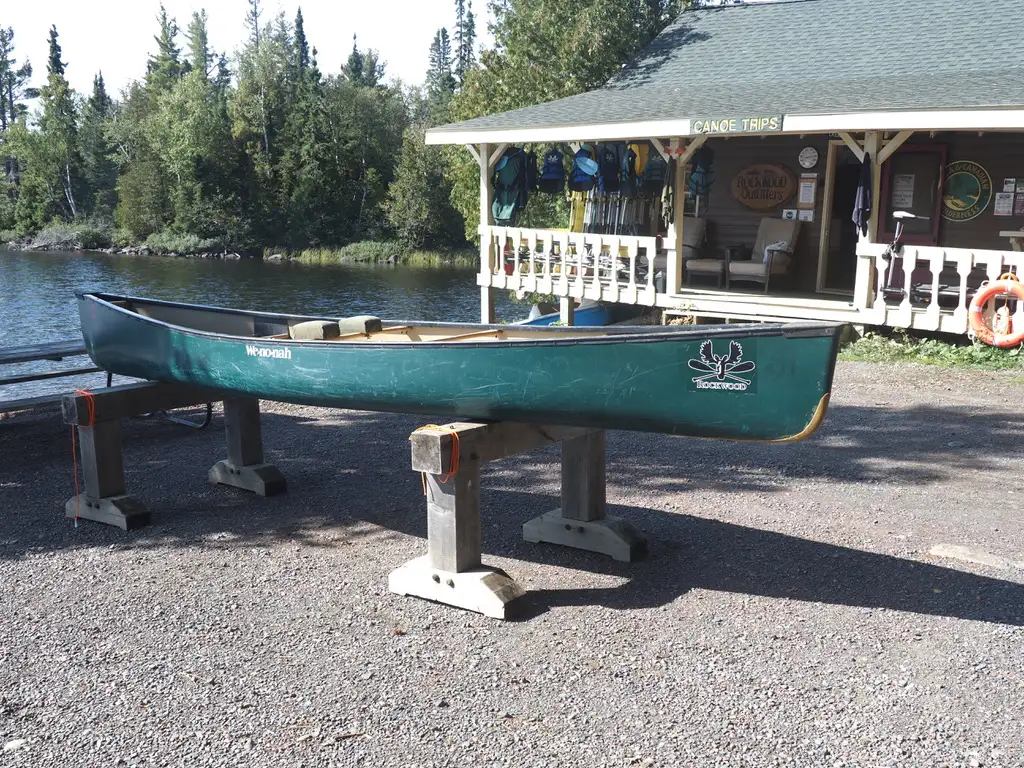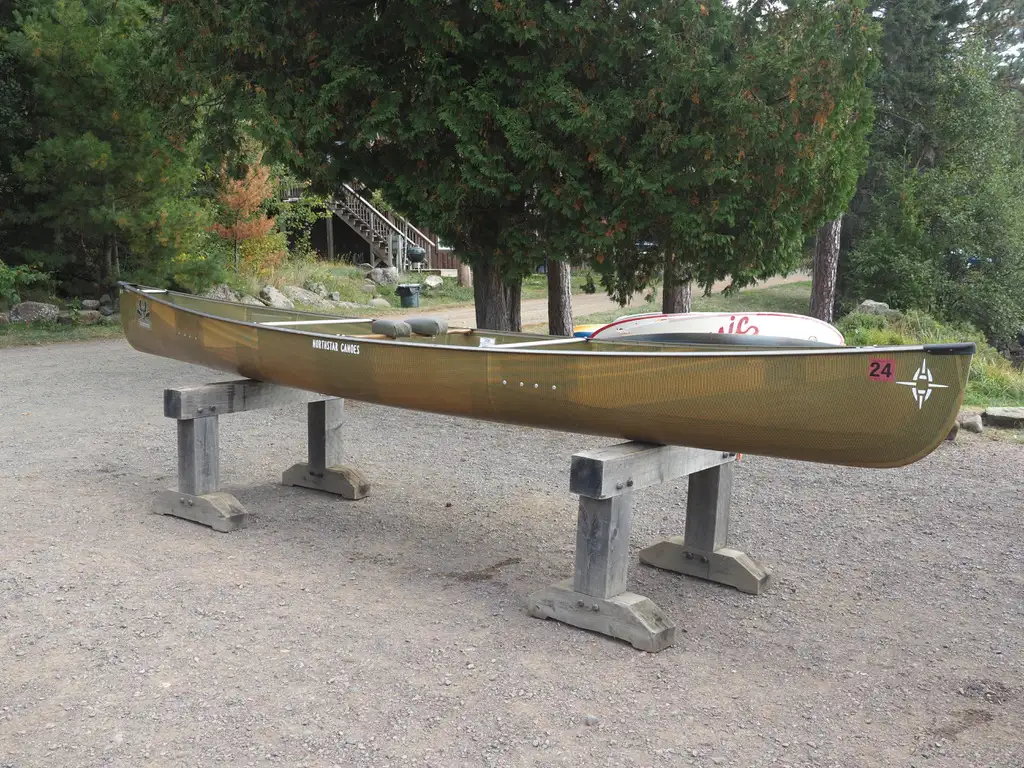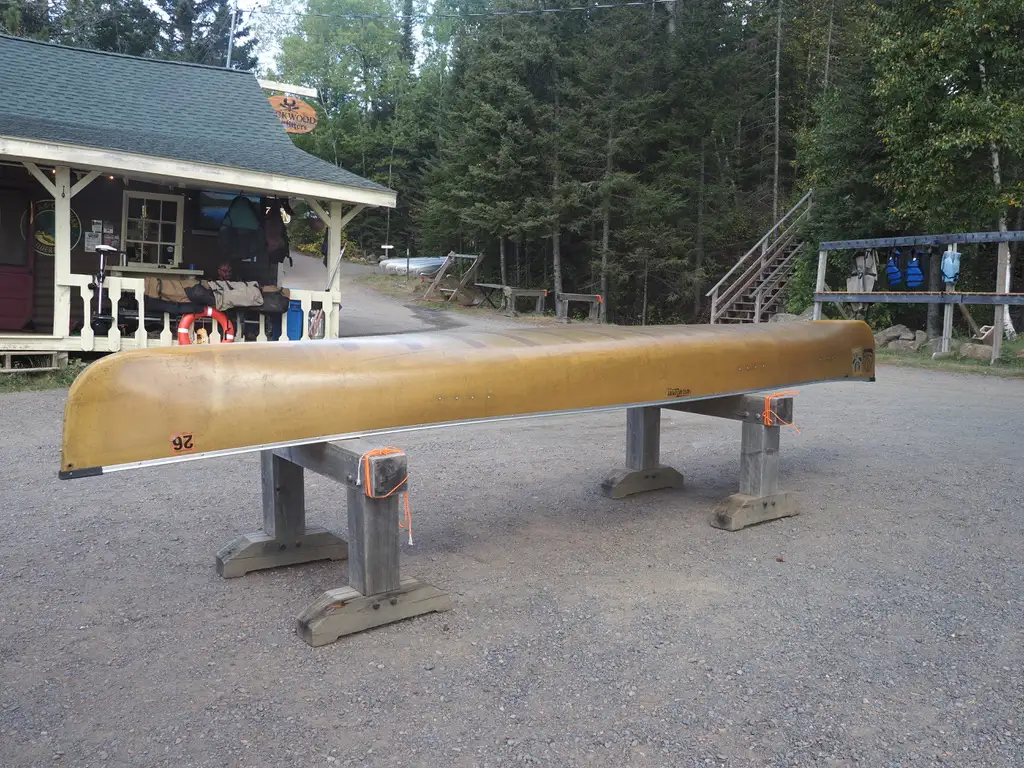Talking Canoes
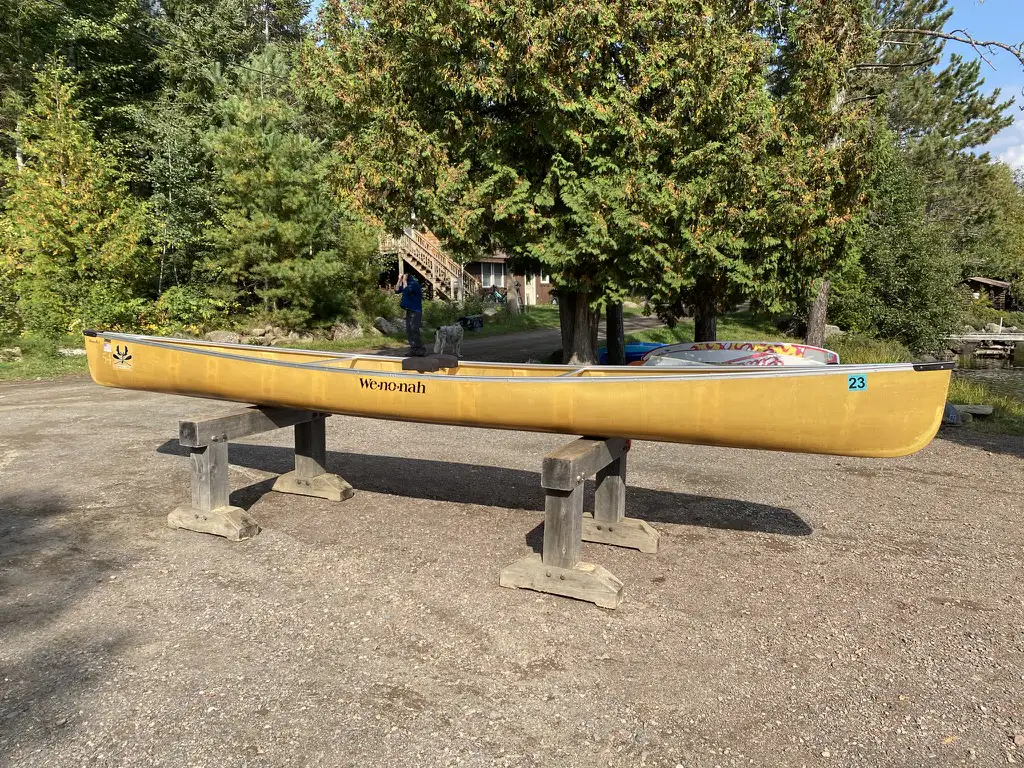
—
Pesse canoe
The first known canoe is The Pesse canoe. Found in the Netherlands in 1955, it is the oldest known canoe. Carbon dating showed it to be almost 10,000 years old. At 10 feet long with a 17-inch beam, it is a dugout canoe made from a Scots pine log.
It’s probably heavy to portage.
Canoes have provided transportation for people and supplies for millennia. From dugouts to birch bark hulls, various styles have been built over the years. In the 20th century, aluminum and fiberglass were used to construct durable and stable hulls.
Here at Rockwood, our canoes consist primarily of Kevlar canoes built by two Minnesota companies: We-no-nah on the banks of the Mississippi in Winona and Northstar in Princeton.
Both manufacturers were started and built by men who loved being on the water. They are world-renowned for their paddling expertise and make the perfect canoe for enjoying the Boundary Waters Canoe Area.
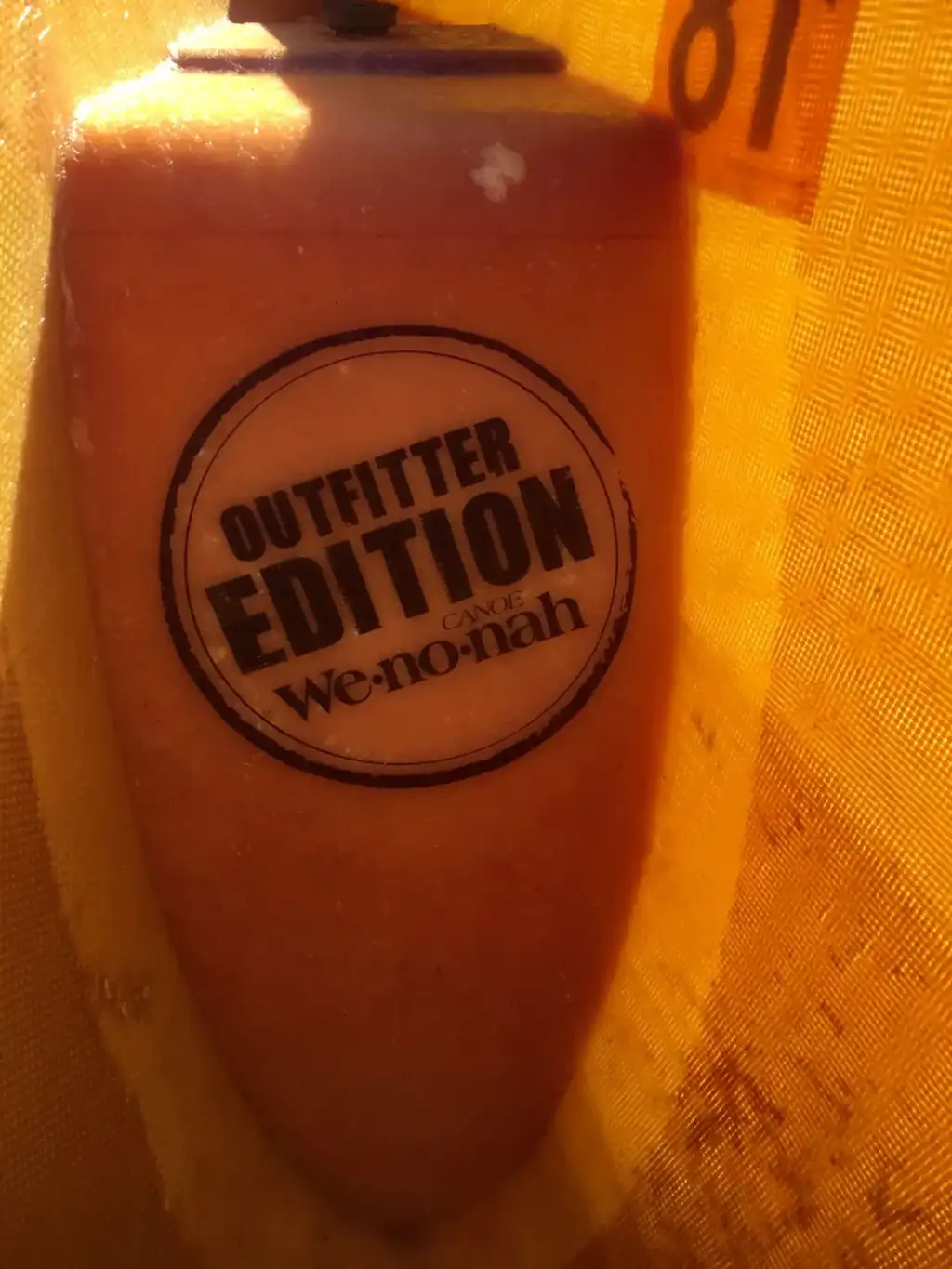
Mike Cichanowski started We-no-nah in the late 1960s. Once, when asked to describe himself in three words, he said, “Born to paddle.” We-no-nah made fiberglass canoes, adopted Royalex for a time, and was the leading builder of Kevlar canoes by the beginning of this century.
Northstar was started in 2013 by Ted Bell and Bear Paulson. Both had years of experience designing, engineering, building, and paddling canoes.
Rockwood’s canoes
Having our stable of canoes claim Minnesota origins appeals to Rockwood’s embrace of the “buy local” philosophy. Besides, they are simply the best canoes to get you out on a Boundary Waters adventure.
Dupont makes Kevlar. Said to be five times stronger than steel, it is a lightweight and durable material used to make canoe hulls, among other things. The flexibility and strength of Kevlar make for a good balance of lightweight and high performance.
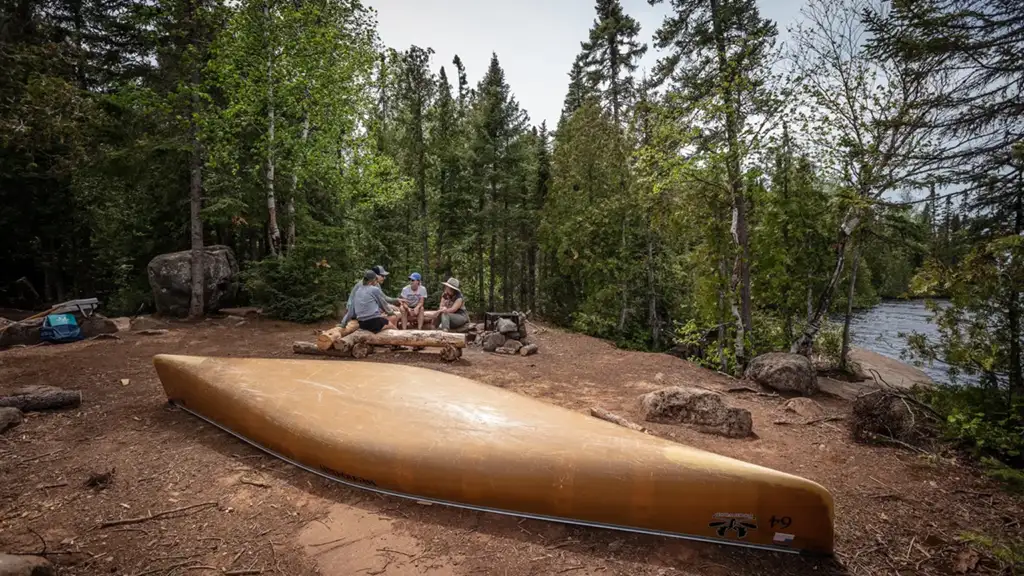
Mike Seim, one of the owners here at Rockwood, buys and maintains our stable of canoes. He’s a strong advocate for Kevlar despite its reputation for fragility.
“When outfitting a client, we stress that the bottom of our Kevlar canoes should touch only air or water and nothing in between,” Mike said. “They should be upside down when on land and loaded and unloaded while floating,” he added.
Mike is considered an expert in these parts at repairing rare punctures or tears in Kevlar. He only has to do that a couple of times a year here at Rockwood, as the Kevlar canoes are durable. He said, “Most times, the tear or puncture is above the waterline, which means the accident happened during portages or at a campsite.”
Joe Friedrich, frequent visitor in the BWCAW and Founder at Paddle & Portage, has three canoes in his stable. Relentlessly promoting canoeing in the BWCA, he indicates that any canoe that gets you on the water is a good canoe.
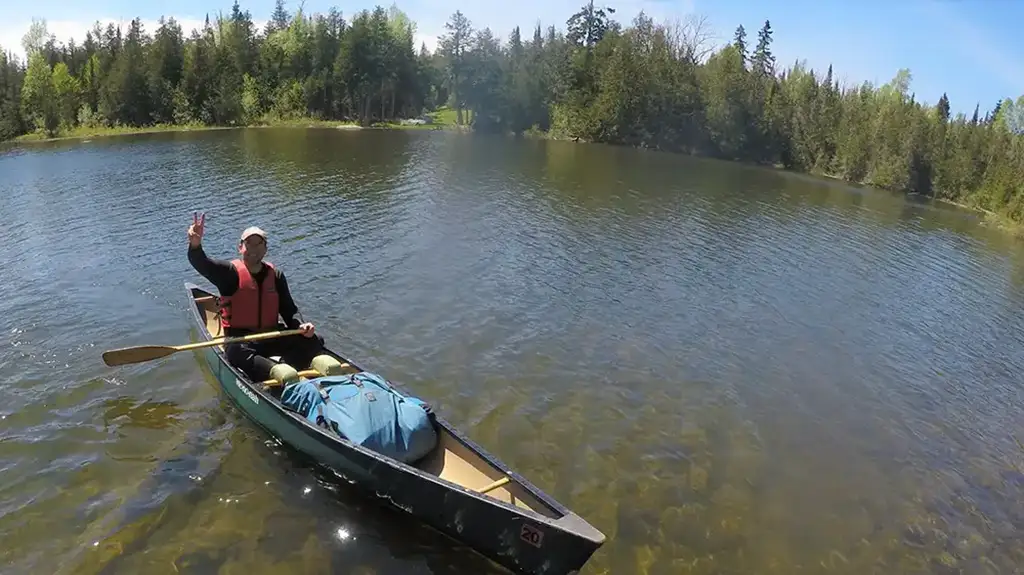
Joe recommends the Wenonah Spirit II and the Northstar Northwind 17 for beginners. “They offer stability, are lightweight, and are fast enough for good fishing,” Joe said.
Canoe design and research into new hull materials are ongoing, so we regularly update our inventory of canoes.
To offer the best of the new, the canoes here at Rockwood serve for three years.
“Three years on a canoe here is the equivalent of eight to ten years by an owner/paddler,” Mike said. We sell the 3-year-old canoes at the end of each season. A buyer can expect 15 to 20 years or more of service from these canoes, which are almost as good as new at a very reasonable price.”
To help you decide which canoe to secure for your next trip, visit our Canoe Comparison chart on the Rockwood website.
Mike is experimenting with a T-Formex canoe. T-Formex is a high-tech ABS plastic laminate designed to be resistant to impacts and abrasion. It is tough and ideal for whitewater paddlers and sportsmen, and the canoe weighs about the same as the aluminum canoes that once dominated the BWCA.
The right canoe will help make a Rockwood canoe trip memorable and enjoyable. We’ll help you plan your trip, from a route that fits your needs and abilities to the canoe, paddles, PFDs (Safety always), food, and sleeping bags you’ll need. Let us know what you need and want, and we’ll bend backward to give it to you.

